Eating These 7 Fruits Before Bed Can Help You Fall Asleep Naturally
1 month ago
5 minute read.

We’ve all been there—lying in bed, staring at the ceiling, wide awake while the clock keeps ticking. If this sounds familiar, you’re not alone. Millions of people struggle with falling asleep or staying asleep through the night. While there are many causes behind poor sleep—like stress, screen time, and irregular schedules—what you eat before bed can make a big difference.
Most people link nocturnal eating to poor sleep and weight increase. But what if we told you that certain fruits promote better sleep? Yes, nature has its sweet sleep remedies—fruits that help calm your mind, relax your muscles, and support the hormones that regulate your sleep-wake cycle.
In this blog, we’ll explore 7 scientifically backed fruits that can improve your sleep quality and help you fall asleep faster.
Also Check: Can Eating Fruits At Night Cause Acidity?
Why Choose Fruits as a Bedtime Snack?
Fruits are a smart choice before bedtime for several reasons:
- They’re easy to digest.
- Many fruits are low in calories, making them ideal if you're watching your weight.
- Certain fruits contain natural sleep-promoting compounds like melatonin, magnesium, potassium, and tryptophan.
- They help prevent late-night sugar cravings that can disrupt sleep cycles.
Instead of turning to heavy meals, caffeine, or processed snacks at night, try these 7 sleep-supporting fruits that may help you catch those much-needed Zzzs.
1. Cherries – The Natural Melatonin Booster
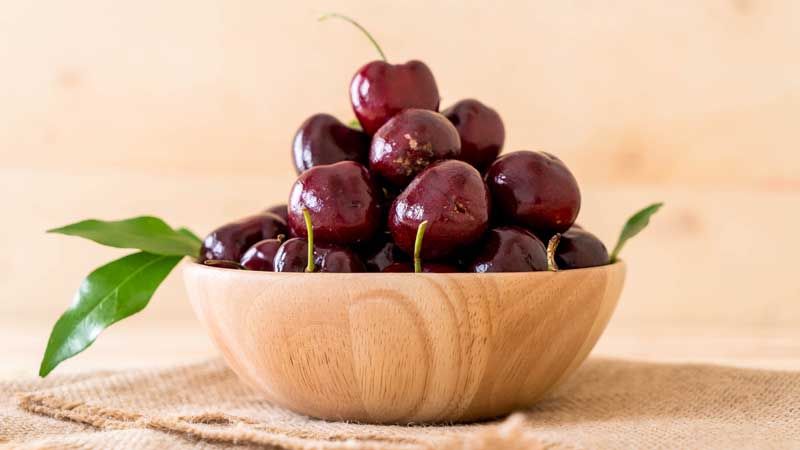
When it comes to sleep-friendly fruits, cherries top the list—especially tart cherries.
Why They Help?
Tart cherries are one of the few foods that naturally contain melatonin, a hormone produced by the body to regulate its sleep-wake cycle. They also have anti-inflammatory properties, which can help the body relax.
What Science Says?
A study published in the Journal of Medicinal Food found that drinking tart cherry juice significantly improved sleep time and sleep efficiency in people with insomnia.
How to Enjoy?
- Drink a small glass of tart cherry juice 1-2 hours before bedtime.
- Eat a handful of dried or fresh cherries as a late-night snack.
Bonus Tip: Avoid cherry juice with added sugar.
Also read: 7 Fruits You Should Avoid Eating On An Empty Stomach
2. Bananas – Rich in Magnesium and Serotonin Precursors
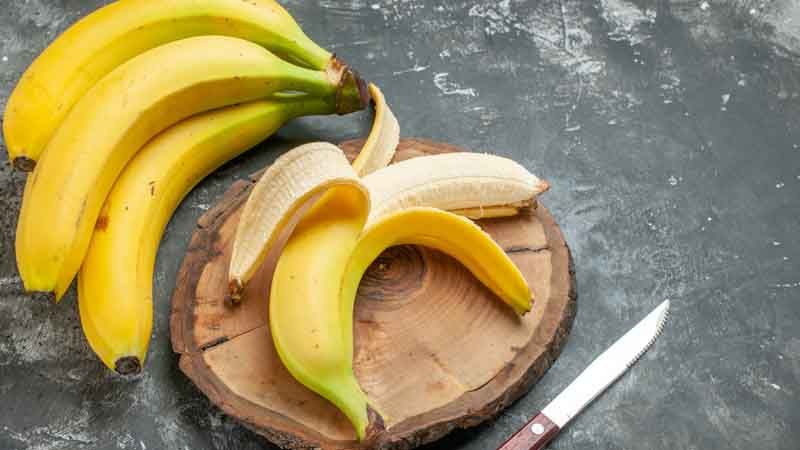
Bananas are more than just a quick energy boost—they’re also sleep supporters.
Why They Help?
Bananas are high in magnesium and potassium, both of which help relax your muscles. They also contain tryptophan, an amino acid that converts into serotonin and then into melatonin—your body’s sleep hormone.
Mind-Body Connection:
Serotonin regulates mood and calms the mind, making it simpler to fall asleep.
How to Enjoy?
- Eat one ripe banana before bedtime.
- Blend it with warm milk or yogurt for a soothing nighttime smoothie.
Pro Tip: Try mashed banana with a spoonful of nut butter for extra magnesium.
3. Kiwi – The Tiny Fruit with Big Sleep Benefits
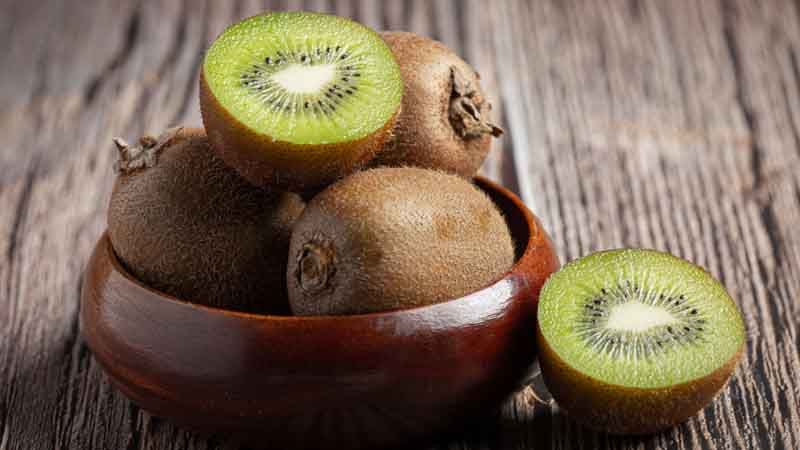
Kiwis are often overlooked, but they are powerhouses of antioxidants, vitamin C, and serotonin.
Why They Help?
Kiwis are naturally rich in serotonin, which helps initiate sleep. They also contain antioxidants like vitamins C and E, which reduce oxidative stress and inflammation—two factors that can interfere with sleep.
What Science Says?
A study conducted by the Taipei Medical University found that eating 2 kiwis one hour before bed for 4 weeks helped participants fall asleep faster and improved their sleep duration and efficiency.
How to Enjoy?
- Eat 1–2 peeled kiwis 30–60 minutes before bed.
- Add them to a bowl of Greek yogurt for extra protein and calcium.
Did You Know? Kiwi is also good for digestion, which further supports better sleep.
4. Pineapple – A Tropical Way to Boost Melatonin

Pineapple is more than just a delicious fruit; it can boost melatonin production.
Why They Help?
Pineapple can help the body produce more melatonin, especially when eaten in the evening. It's also hydrating and helps prevent nighttime dehydration, which can interrupt sleep.
How to Enjoy?
- A few chunks of fresh pineapple 1–2 hours before bed.
- Avoid canned pineapple with added sugar or preservatives.
Pro Tip: Pineapple also contains bromelain, a digestive enzyme that supports gut health.
5. Grapes – Small Fruit, Big Sleep Effect
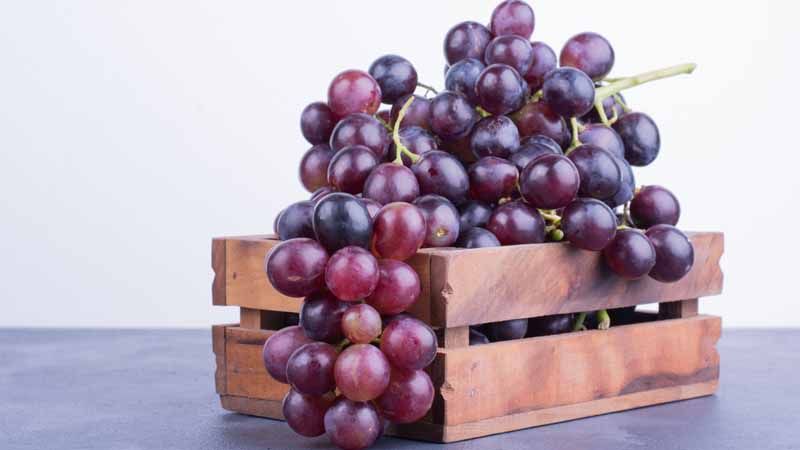
Grapes—especially the red, black, or purple varieties—contain natural melatonin in their skin.
Why They Help?
Grapes naturally contain melatonin, which helps regulate your circadian rhythm. Grapes also contain resveratrol, a plant compound that has calming, anti-inflammatory properties.
How to Enjoy?
- A small handful of seedless grapes before bedtime.
- Chill them for a refreshing summer sleep snack.
Quick Tip: Choose organic grapes when possible to avoid pesticide residues.
6. Berries – The Antioxidant Sleep Snack
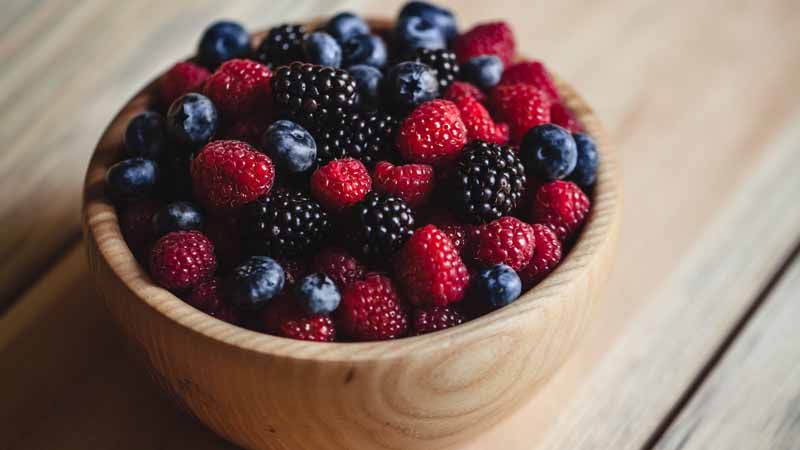
Strawberries, blueberries, raspberries, and blackberries are not only tasty, but also high in antioxidants, vitamin C, and fiber.
Why They Help?
Berries support brain health and help lower cortisol levels, the stress hormone that often keeps people up at night. They also help balance blood sugar, preventing nighttime crashes.
How to Enjoy?
- A small bowl of mixed berries.
- Add a dash of cinnamon to unsweetened yogurt.
Note: Avoid eating too many sour or acidic berries if you’re prone to acid reflux.
Also read: How to include fruits and vegetables in your diet?
7. Papaya – The Digestion-Friendly Sleep Fruit
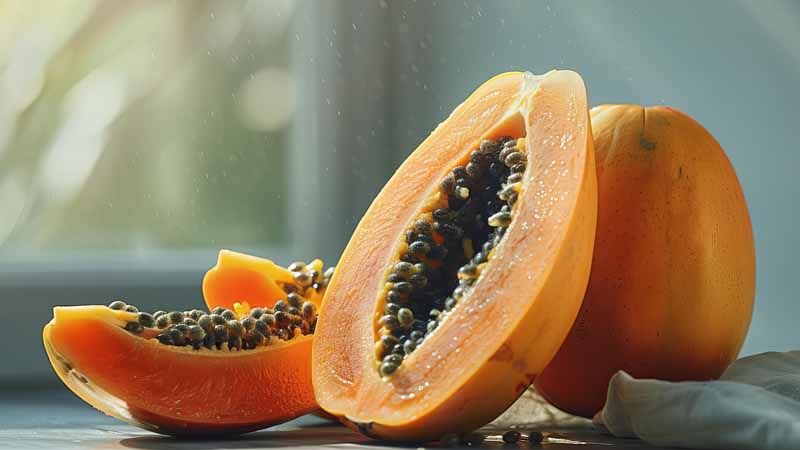
If you suffer from bloating, indigestion, or acidity, papaya can be a soothing choice before bed.
Why They Help?
Papaya contains papain, a natural enzyme that improves digestion. It also has magnesium and antioxidants that help reduce inflammation and relax muscles.
How to Enjoy?
- Eat 3–4 slices of ripe papaya about 1 hour after dinner.
- Sprinkle with a little black salt or lime juice for taste (if it doesn’t affect your digestion).
Extra Benefit: Papaya is rich in beta-carotene, which supports immune health too.
Best Practices for Eating Fruits Before Bed
To get the most out of your fruit-based bedtime snack, keep these tips in mind:
- Eat at least 30–60 minutes before lying down to avoid digestion issues.
- Pair fruits with healthy fats or protein (like nuts, seeds, or yogurt) to maintain stable blood sugar.
- Avoid fruits that are too acidic or sugary, especially close to bedtime.
- Stick to moderate portions to avoid overnight spikes in blood sugar or digestive discomfort.
- Choose whole fruits over fruit juices to get fiber and reduce sugar intake.
Also read: Fruits And Vegetables You Should Peel—And You Shouldn't Peel
Final Thoughts: Let Fruit Be Thy Sleep Medicine
In a world full of sleep aids and supplements, it’s comforting to know that nature already has solutions waiting for us. By simply adding the right fruits to your evening routine, you can support deeper, more restful sleep without relying on pills or gimmicks.
So tonight, ditch the processed snacks and try a banana, a bowl of berries, or some kiwi slices.
Leave a Comment
Related Articles
Health Checks @ Home
Service
Explore
© 2025 Truworth Health Technologies Pvt. Ltd.





